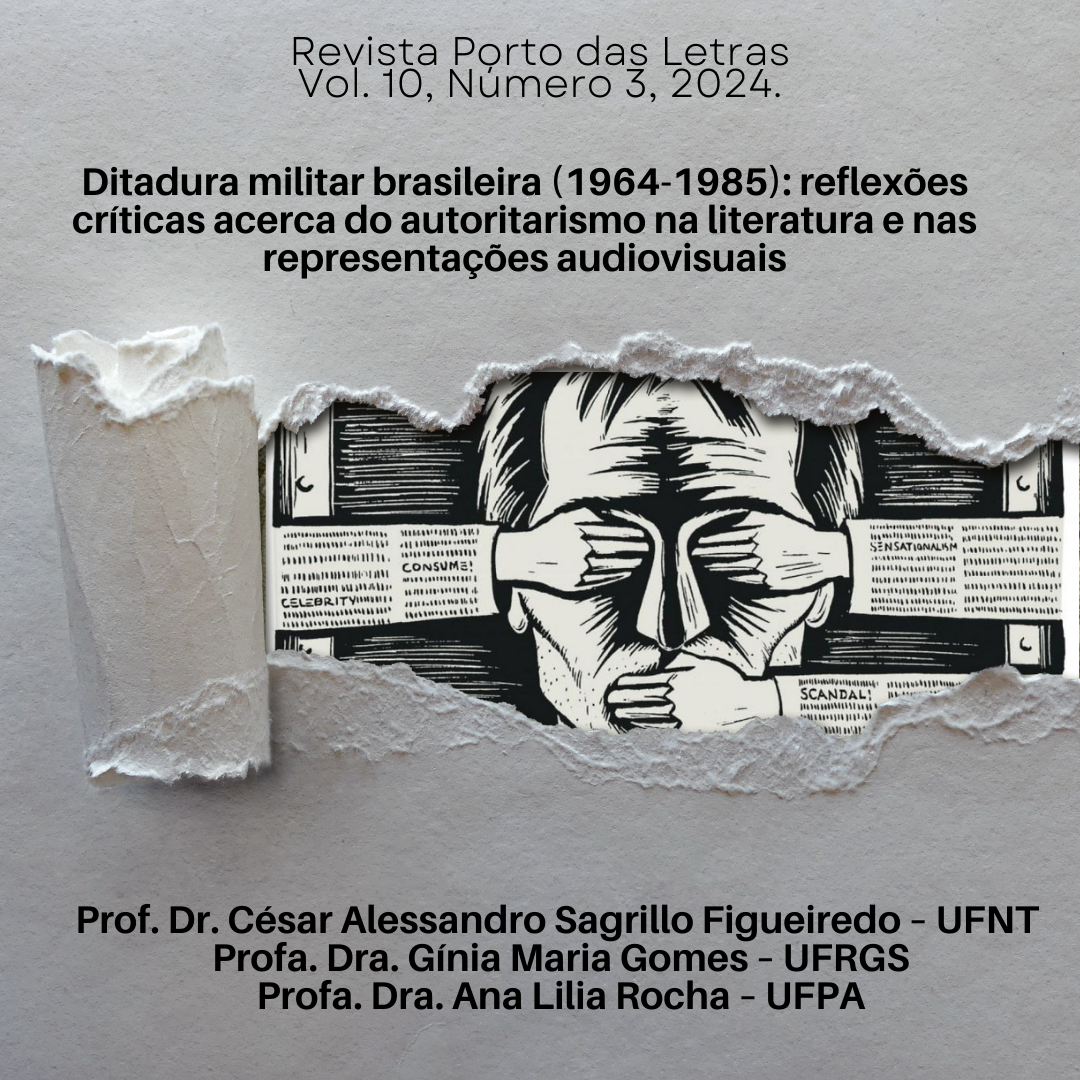Memórias Quase Póstumas de um Ex-torturador:
um homem torturado pelo ato de torturar
DOI:
https://doi.org/10.20873.24.4016Keywords:
Literatura de testemunho; Memória; TraumaAbstract
Testimony literature has brought many reflections on the act of narrating traumatic events. It encompasses literary productions that emerged from memories narrated by those who lived under the rule of authoritarian regimes. Thus, these narratives sometimes come from those who suffered a trauma, or simply witnessed a cycle of atrocities, such as those of Nazi Germany, the period between wars, military dictatorships, among others. In this sense, this work seeks to make a brief outline of these events, pointing out in the light of Agamben (2008), Freud (2010), Seligmann-Silva (2008), Sarlo (2007), the issue of memory, testimony, traumatic experiences, including Pedro’s character , investigator, torturer of the Vargas dictatorship in Brazil and victim of his own atrocities throughout João Bosco Maia's narrative “Almost Posthumous Memoirs of a Former Torturer”. This investigation also reveals, in the light of Iser (1996), how much, based on reader expectations, the reader of traumatic narratives can (re)act in the act of reading, becoming indignant at the events narrated in the text. It confirms, by Reader Response Theory, that a literary work occurs in the mutual relationship between the reader and the text and that the meaning of the work is constructed through a relationship between the reader and the text, within a particular reading context .
References
AGAMBEN, Giorgio. O que resta de Auschwitz: o arquivo e a testemunha (Homo Sacer III). São Paulo: Boitempo, 2008.
ALÓS, Anselmo Peres. Literatura de resistência na América Latina: a questão das narrativas de testimonio. Revista Espéculo. Ano XII, numero 37, novembro de 2007 a fevereiro de 2008. Disponível em: < https://pendientedemigracion.ucm.es/info/especulo/numero37/nartesti.html> Acesso em 08.01.17.
FOUCAULT. M. Microfísica do Poder. Rio de Janeiro: Graal, 1979.
FREUD, Sigmund. O mal-estar na cultura. Trad. Renato Zwick. Porto Alegre: L&PM, 2010. (Coleção L&PM Pocket) .
ISER, Wolfgang. O Fictício e o Imaginário. Perspectivas de uma antropologia literária. Rio de Janeiro: EDUERJ, 1996.
_____ Os atos de fingir ou o que é fictício no texto ficcional. In: COSTA LIMA, Luiz. Teoria da Literatura em suas fontes. V. II. 2ª. ed. Rio de Janeiro: Francisco Alves, 1983.
MAIA, João Bosco. Memórias Quase Póstumas de Um Ex-Torturador. Belém: IAP, 2006.
SARLO Beatriz. Cultura da memória e Guinada Subjetiva. São Paulo: Companhia das Letras, 2007.
SELIGMANN-SILVA, Márcio. Zeugnis e Testemonio: um caso de intraduzibilidade entre conceitos. Revista Letras. Nº 22. Jun/Jan 2001. Disponível em:
http://w3.ufsm.br/revistaletras/artigos_r22/ 11_marcio_silva.pdf. Acesso em 20/08/2009.
________ (org.). História, memória, literatura: o testemunho na Era das Catástrofes. Campinas: Ed. da Unicamp, 2003.
__________. Narrar o trauma: a questão dos testemunhos de catástrofes
históricas. Revista Psic. Clin., Rio de Janeiro, Vol. 20, Nº 01, p. 65-82, 2008.
________. Imagens precárias: inscrições tênues de violência ditatorial no Brasil. Estudos de literatura brasileira contemporânea, n. 43, p. 13-34, jan./jun. 2014.
________ O Local do Testemunho In. Tempo e Argumento. Revista do Programa de Pós Graduação em História. Florianópolis, v. 2, n. 1, p. 3 – 20, jan. / jun. 2010.
Downloads
Published
How to Cite
Issue
Section
License
Os autores concordam com os termos da Declaração de Direito Autoral, que se aplicará a esta submissão caso seja publicada nesta revista (comentários ao editor podem ser incluídos a seguir).

